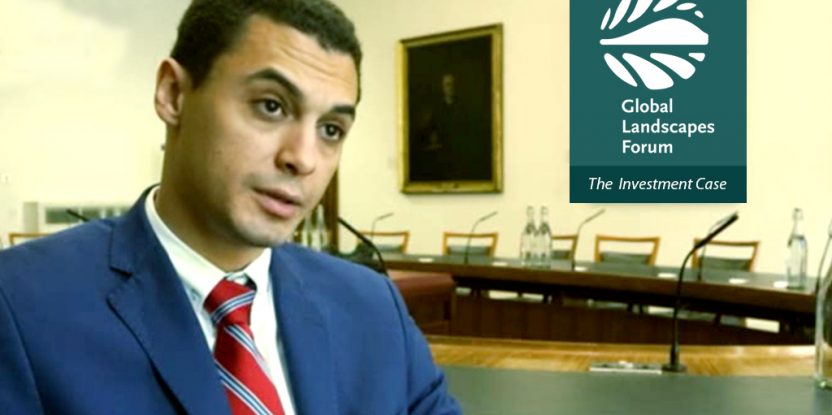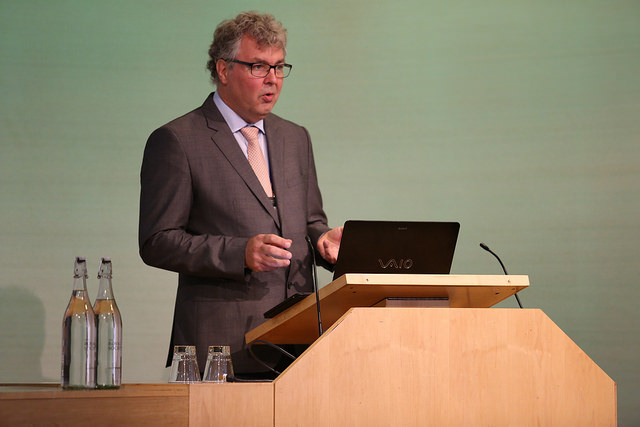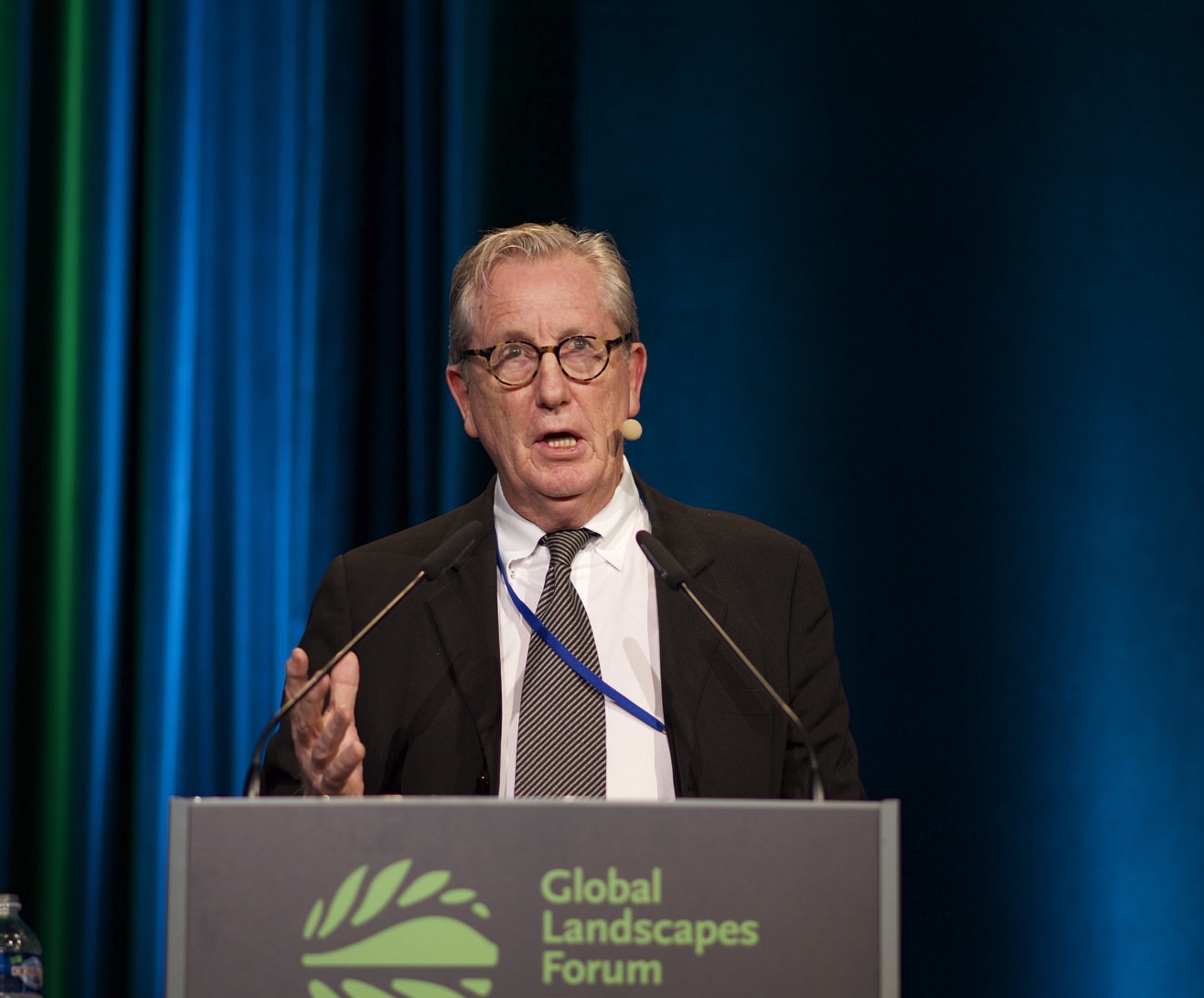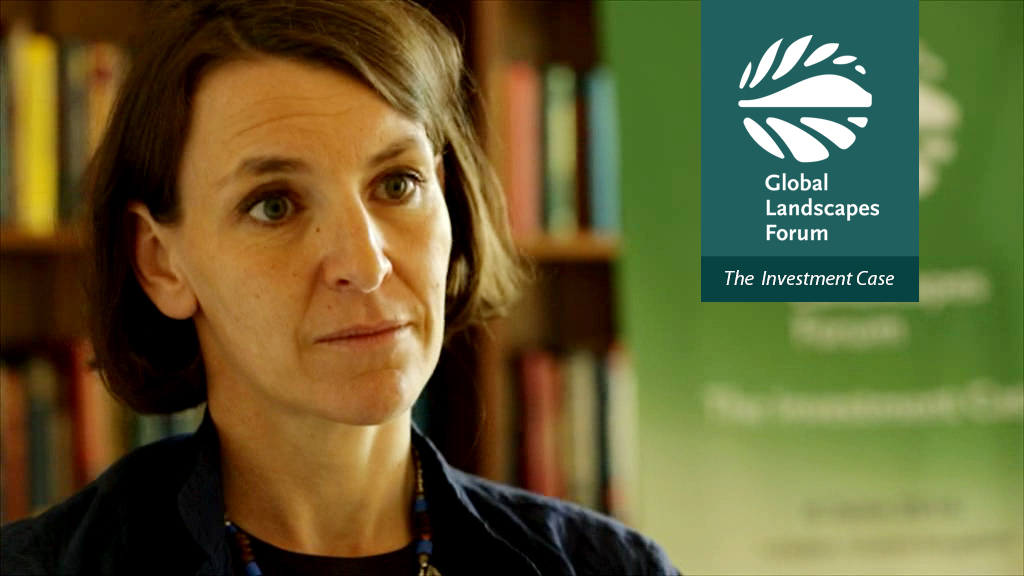
This article is Part 4 of a four-part series of video interviews held on the sidelines of the Global Landscapes Forum 2016 – The Investment Case. The aim of this one-day experts symposium was to accelerate investment in landscapes.
A Q&A with Ayman Cherkaoui, Advisor to the Environment Minister of Morocco.
How can the private sector engage in tackling climate change?
I see it engaging more, thankfully, through the institutionalization of the LPAA, the Lima-Paris Action Agenda, or what is currently becoming the Global Climate Action Agenda. It provides an interesting platform for the private sector to be mobilized. In that account the private sector has already been mobilizing. We’ve noticed, all of us, a very important change – a paradigm shift – in how the private sector has been contributing to the concrete, tangible solutions to the climate change challenges all over the world.
Coherence in public policy is very key to enabling sustainable and substantive investment from the private sector.
How can governments encourage investment in sustainable landscapes?
Predictability is very important for the private sector. And in that context, first of all, we have the Paris Agreement, the INDCs [Intended Nationally Determined Contributions] – we have more than 160 INDCs that were submitted, presenting 189 parties to the UNFCCC [United Nations Framework Convention on Climate Change]. And those INDCs provide a very interesting platform to provide predictability and reassure the sector that there are all kinds of national actors, who are coherent in the way they approach the issue. On top of that, if I am to use the Moroccan example, coherence in public policy is very key to enabling sustainable and substantive investment from the private sector. And in particular, for example, in the case of Morocco, in 2012 we started phasing out fossil fuel subsidies, because we wanted to be coherent in our effort to improve and enhance the capacities of our country in renewable energy.
What are the challenges from a legal perspective?
What I find very interesting and very creative about the Paris Agreement, that provides us with a more global legal framework for climate change action, is the bottom-up approach. That relies strongly on the willingness of all the parties, and the drive of all the parties to address the issue of climate change at a national level that makes sense to their means and makes sense to the priorities that they happen to have at the national level. So when I think of it, from a legal perspective, I find that the main challenge that we have to think on is really the domestic level. To provide more of a sense of ownership of all those different parties to the UNFCCC about the INDCs that they committed to. Because each INDC comes with legal implications as for how they should be framed, their own landscape. Then there is the global landscape, and solutions such as the one that is being driven by this very forum, in terms of having a global framework for a more individualized action is also a very key component to that.
What are your hopes for the UNFCCC COP 22 in Marrakesh this year?
I think my hopes are a bit more than hopes, they’re expectations. I think there’s a very strong drive and urge to make sure that concrete results are reached in Marrakesh. And in that context we have identified five areas where we feel that we can definitely reach some concrete outcomes. The first one will be the implementation of the Paris Agreement per se, there’s a set of decisions that have to be taken, made formal, and we have to make sure that the machine, that all the gears are turning the way they are supposed to and are well-greased. And thankfully we still benefit from what we call the ‘spirit of Paris’, this constructive spirit that emerged among negotiators, ministers and truly all the citizens of the world to make the Paris Agreement the success that it is.
What are your impressions of the 2016 Global Landscapes Forum so far?
Well first of all I was about to say I was very impressed by the caliber of the presentations I’ve seen, but I was expecting them to be that good because I attended the event last year and it was just very, very inspiring. When it comes to more concrete things that have been very interesting to see, gave me food for thought, has been really the realization that there is, at the same time that we are trying to move past the economic value system to have metrics to drive investment, we are still aware that when it comes to trying to showcase and drive a paradigm shift in the investment behavior it is important to not to lose sight of them. And how we can really showcase that there can be concrete, positive and competitive financial returns from investing in that field, in sustainable landscapes, is something that I was happy to see in the morning and I want to keep on learning more today in the afternoon as well.
We want you to share Forests News content, which is licensed under Creative Commons Attribution-NonCommercial-ShareAlike 4.0 International (CC BY-NC-SA 4.0). This means you are free to redistribute our material for non-commercial purposes. All we ask is that you give Forests News appropriate credit and link to the original Forests News content, indicate if changes were made, and distribute your contributions under the same Creative Commons license. You must notify Forests News if you repost, reprint or reuse our materials by contacting forestsnews@cifor-icraf.org.


